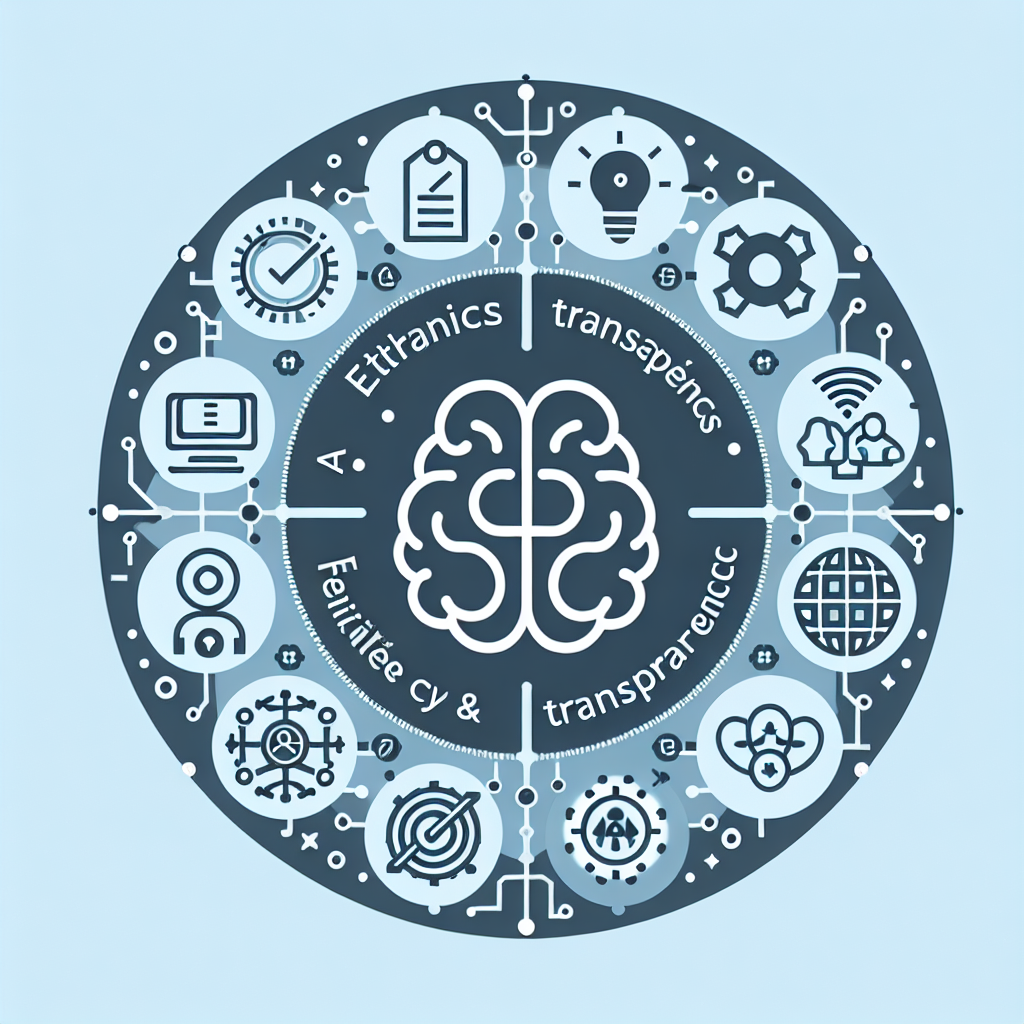As artificial intelligence (AI) continues to play an increasingly important role in our lives, the ethical implications of its deployment have become a topic of concern for many. From autonomous vehicles to facial recognition technology, AI has the potential to revolutionize industries and improve efficiency, but it also raises questions about privacy, bias, and accountability. In this article, we will explore the ethics of AI deployment, including the potential risks and benefits, as well as the need for ethical guidelines and regulations.
Benefits of AI Deployment
There are numerous benefits to deploying AI in various industries, including healthcare, transportation, finance, and more. AI has the potential to improve efficiency, reduce human error, and increase productivity. For example, in healthcare, AI can be used to analyze medical images and assist in diagnosis, leading to faster and more accurate treatment for patients. In transportation, AI can help autonomous vehicles navigate safely and efficiently, reducing accidents and traffic congestion. In finance, AI can be used to detect fraud and identify investment opportunities, leading to better financial decisions.
AI deployment also has the potential to improve customer service and personalize experiences. Chatbots and virtual assistants powered by AI can provide instant responses to customer inquiries and offer personalized recommendations based on individual preferences. This can lead to increased customer satisfaction and loyalty.
Risks of AI Deployment
Despite the many benefits of AI deployment, there are also risks and ethical concerns that must be addressed. One of the main concerns is the potential for bias in AI algorithms. AI systems are trained on large datasets, which can contain biases that are present in the data. If not properly addressed, these biases can lead to discriminatory outcomes, such as in hiring decisions or loan approvals.
Another ethical concern is the lack of transparency in AI systems. Many AI algorithms are complex and opaque, making it difficult to understand how they make decisions. This lack of transparency can lead to distrust in AI systems and raise questions about accountability.
Privacy is also a major concern when it comes to AI deployment. AI systems often collect and analyze large amounts of data, raising questions about how this data is stored, shared, and used. There is a risk that sensitive information could be exposed or misused, leading to privacy violations.
Ethical Guidelines and Regulations
To address the ethical concerns surrounding AI deployment, it is important to establish clear guidelines and regulations. Several organizations and governments have developed ethical frameworks for the responsible use of AI. For example, the European Union’s General Data Protection Regulation (GDPR) sets out rules for the collection and processing of personal data, including requirements for transparency and consent.
The IEEE Global Initiative for Ethical Considerations in Artificial Intelligence and Autonomous Systems has also developed a set of ethical guidelines for AI developers and users. These guidelines include principles such as transparency, accountability, and fairness, and aim to ensure that AI systems are developed and deployed in a responsible manner.
In addition to ethical guidelines, there is a growing call for regulations to govern the use of AI. Some countries have already implemented regulations specific to AI, such as the Algorithmic Accountability Act in the United States, which requires companies to assess the impact of their AI systems on bias, discrimination, and privacy.
FAQs
Q: What is bias in AI algorithms?
A: Bias in AI algorithms refers to the presence of prejudices or discriminatory patterns in the data used to train the algorithm. This can lead to unfair or discriminatory outcomes in decision-making processes.
Q: How can bias in AI algorithms be addressed?
A: Bias in AI algorithms can be addressed through careful data collection and preprocessing, as well as by implementing fairness measures in the algorithm itself. It is also important to regularly evaluate and monitor AI systems for bias.
Q: What is transparency in AI systems?
A: Transparency in AI systems refers to the ability to understand how the system makes decisions. This includes being able to explain the reasoning behind a decision and the factors that influenced it.
Q: Why is privacy a concern in AI deployment?
A: Privacy is a concern in AI deployment because AI systems often collect and analyze large amounts of data, raising questions about how this data is stored, shared, and used. There is a risk that sensitive information could be exposed or misused.
In conclusion, the ethics of AI deployment are complex and multifaceted, requiring careful consideration and regulation. While AI has the potential to bring about significant benefits, it also raises important ethical questions that must be addressed to ensure that AI is developed and deployed in a responsible and ethical manner. By establishing clear guidelines and regulations, as well as promoting transparency and accountability, we can harness the power of AI while mitigating its risks.

